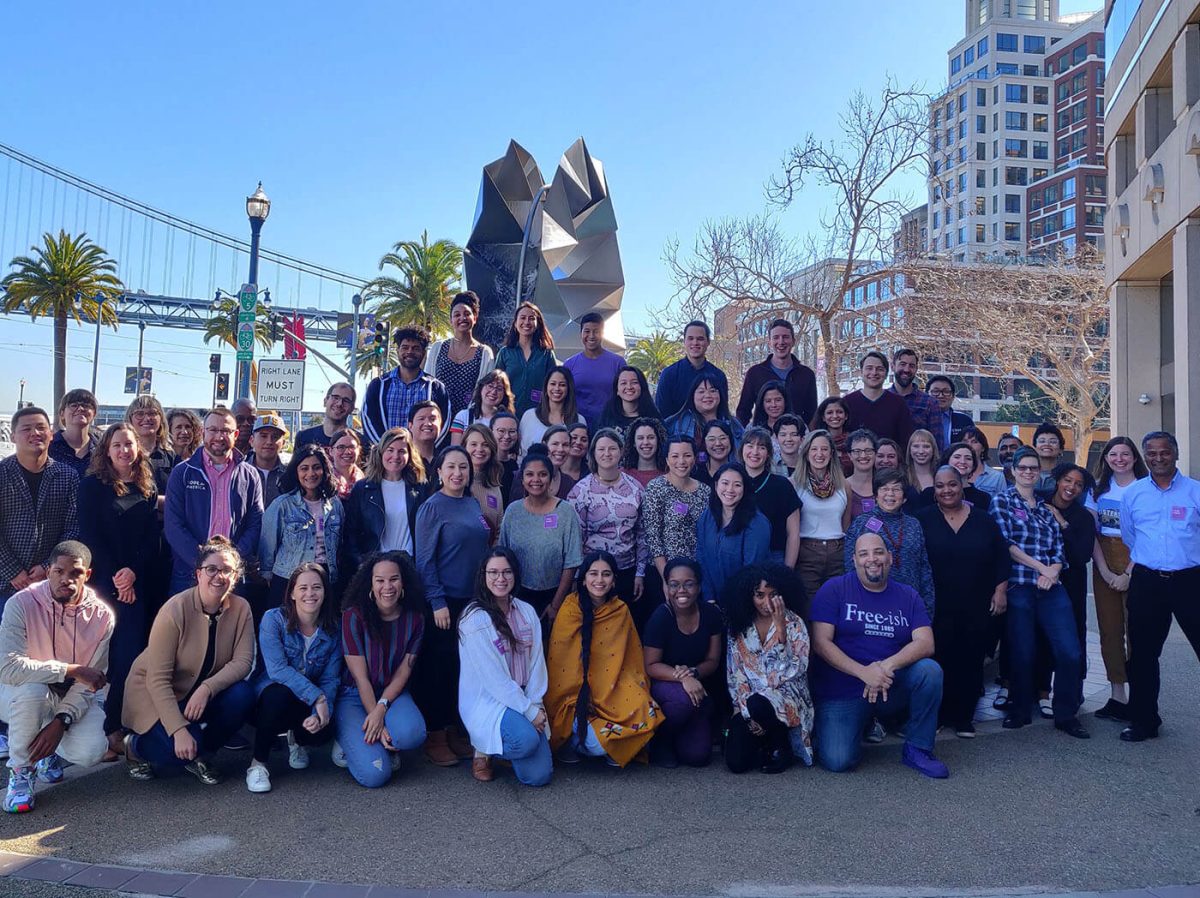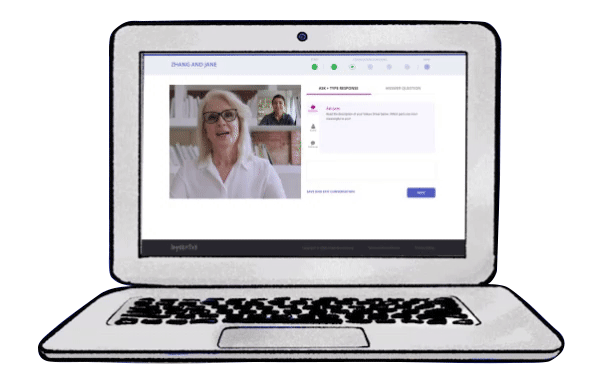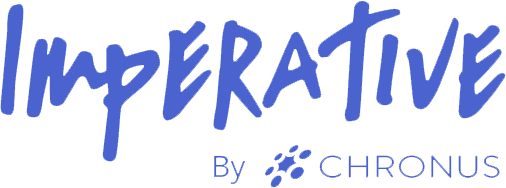How Code For America Implemented Peer Coaching On Imperative To Build A Coaching Culture And Empower Employees
Overview

Code for America (CfA) is a civic technology organization that works to provide human-centered solutions for government services, making “government work in the digital age.” For CfA, having a work culture filled with constant collaboration, innovation and inspiration is essential.
When the COVID-19 pandemic set in, the company faced a series of big, new challenges. It turned to Imperative to create a peer coaching program to meet CfA’s needs. Unlike mentoring or other forms of coaching, peer coaching brings together two people as equals to engage in structured conversations that each end in a commitment to an action.
Within just the first few weeks, the results were already “incredibly powerful” and transformational for CfA, explains Zeryn Sarpangal, chief financial and people officer, who was also one of the participants. As a result of peer coaching, participants began to take all sorts of concrete actions that have helped the organization flourish. Now, the program is expanding across the organization.
In interviews with Imperative, Sarpangal and other employee participants at CfA described the “remarkably effective” results of peer coaching, why it’s a uniquely “scalable solution,” and how it has been improving their work and their lives, a solution they found so much initial value in that they immediately prioritized how they could continue and expand to the rest of the organization.
Challenge
Maintain Connection Working Remotely
Code for America’s entire staff began working exclusively from home due to the pandemic. “We were feeling the lack of connection between our employees,” says Sarpangal. Although remote work was always an option, the time employees spent together at the office had helped create a strong sense of connection. Now, “people were craving deeper connections” than what most have on Zoom, where interactions often feel “transactional,” she says.

CfA was also looking for ways to help its managers grow and develop, Sarpangal adds. The pandemic introduced numerous challenges for managing employees, and the organization opted to offer coaching to help them be strong leaders during such a difficult time.
While peer coaching seemed like it could provide a great solution, Sarpangal says she of course had some questions and concerns about it. “We’d had executive coaching before, so I actually wasn’t sure how good peer coaches would be in order to be really supportive of each other” and getting results. Also, “We were already experimenting with a lot of different things,” including Zoom chats and Donut. And she was wary of “adding one more thing to people’s calendars.” Still, it seemed worth trying as an experiment.
Solution
Peer Coaching for Managers and Their Teams
To launch peer coaching on Imperative’s platform, participants began by filling out our scientifically designed purpose peer coaching profile. Then, they were paired off using Imperative’s algorithm.
The video-enabled platform guided the peer coaching pairs through each conversation by providing the questions and coaching prompts, supporting the peers to reflect on their real-time work experiences and leave with a meaningful commitment to action before their next conversation.
As employees engaged in peer coaching conversations, the Imperative platform collected anonymized quantitative and qualitative data about the quality of the experience and the results.
Results
True Connection and Agility
Overwhelmingly, the participants described the program as “helpful,” “very helpful,” and “breakthrough.” Virtually all (95%) of the actions the participants pledged to take after each session were completed.
Some of these included:
- Clarifying roles and responsibilities
- Building greater trust and credibility
- Identifying strengths to provide maximal impact to the organization
- Making the case for a long-term revenue strategy
- Professionally and effectively discussing and resolving contrasting ideas
Benefits
Culture of Inclusion and Continuous Growth
The peer coaching experience instilled accountability to take a “really intentional action that is connected to something that you have just processed for a while” through a peer coaching session, Sarpangal explains. “To say, ‘I’m going to experiment, I’m going to test, I’m going to potentially stretch myself out of my comfort zone a little and try something, and then come back to somebody to then debrief around what happened’ — (somebody) who had context — was really powerful.”
In interviews, participants told Imperative that the benefits of peer coaching were widespread in their work lives. They reported increased productivity, increased engagement, more trusting relationships, and owning their personal career growth. While the initial results were powerful, they are excited to see how the results will scale as they continue to use peer coaching on Imperative and expand to the rest of the organization.
“What peer coaching does is meet people where they are. It was incredibly powerful as a way of fostering connection and ended up being a lovely way to create a scalable solution for us, offering connection and providing growth to our managers.”
Zeryn Sarpangal, Chief Financial and People Officer
Employee Story
Self-Advocacy
One participant had undergone a change in their role due to COVID-19. Now working independently and with role ambiguity, they were feeling isolated and less connected to the organization, while simultaneously experiencing lack of role clarity and decreased sense of purpose.
Through peer coaching, they figured out what they needed to do and built up the confidence to do it. “It’s reignited a little bit of fire that’s been missing for a while,” they say. Peer coaching “helped me walk away knowing what makes work meaningful for me,” they add. “It helped put things into perspective and focus on the positive.”
With help from their peer coach, this employee prepared to address the situation with their manager. They approached their manager for an open, honest conversation, and the two set about fixing this problem together. The employee tells Imperative their focus “has shifted dramatically.”
Their manager, meanwhile, told Imperative that they were relatively new to their managerial position, and “needed to navigate a very rocky time with my direct report. How do you possibly know exactly what someone needs? All of us are trying to figure out what we need, and as managers, you carry the weight of supporting your team.” Now, knowing what this employee is looking for “feels like a huge weight off my shoulders. I can use my energy towards providing the support they need. It’s already built so much more trust between us.”
The manager is also participating in peer coaching conversations of their own. It “helps you get clear about what you need from your boss or within a role so you can be successful,” they say.
“In this virtual world that we all have transitioned to, this was a way to create intimacy, trust and build deeper relationships between colleagues. This isn’t just about individual growth. This is about strengthening the fabric of an organization and its workforce.”
Manager, Code for America

